Misdemeanour Examples: Common Minor Offenses
Did you know that misdemeanour charges account for a significant portion of criminal cases in Canada?
While felonies often dominate news headlines, misdemeanours are more common and can have a lasting impact on individuals accused of minor offenses. Understanding what constitutes a misdemeanor and the potential consequences is crucial in navigating the legal system.
Key Takeaways:
- Misdemeanours are lesser crimes under statutory laws.
- Common misdemeanour examples include minor drug offenses, drunk driving, petty theft, assault, trespassing, vandalism, and certain cybercrimes.
- Misdemeanours carry penalties that can include incarceration, fines, community service, probation, and restitution.
- Understanding the difference between misdemeanours and felonies is essential. Misdemeanours are less serious crimes with shorter jail sentences.
- Factors such as the amount of damages involved, the status of the victim, aggravated behavior, or a defendant’s criminal record can impact misdemeanor charges.
Understanding Misdemeanours: Definition and Differences
Misdemeanours are crimes that carry a potential jail sentence of no more than one year. They are more serious than infractions but less serious than felonies. Misdemeanours can be distinguished from felonies based on the length of imprisonment, penalties, and intent requirements. Unlike infractions, misdemeanours carry the possibility of jail time.
Examples of misdemeanours include DUI, assault, drug possession, theft, and public intoxication.
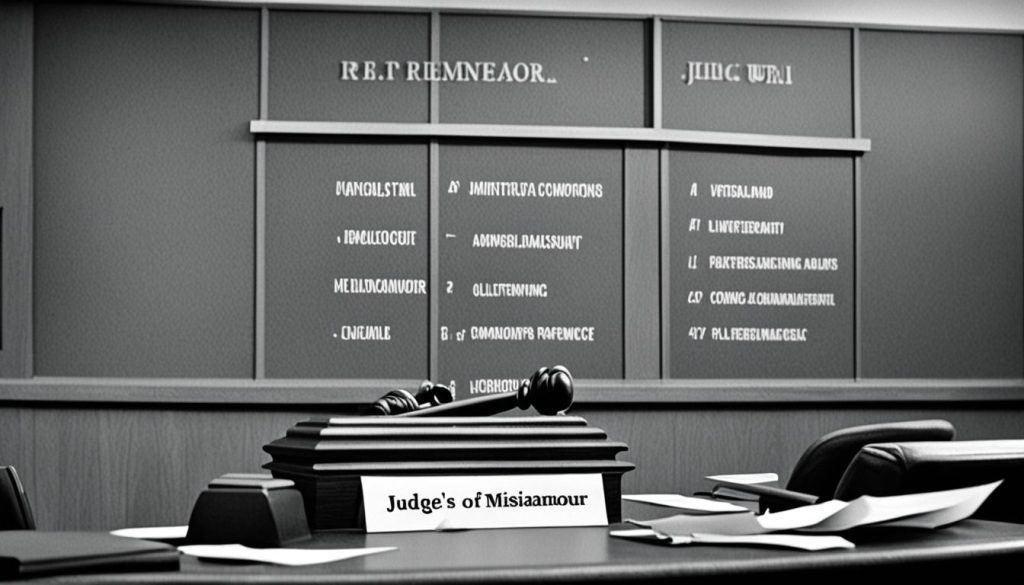
- DUI: Driving under the influence of alcohol or drugs.
- Assault: Intentionally causing physical harm to another person.
- Drug Possession: Illegally possessing controlled substances.
- Theft: Taking someone’s property without permission.
- Public Intoxication: Being intoxicated in a public place.
Classifications and Penalties for Misdemeanours
Misdemeanours are often classified into different categories with varying levels of punishment. Common classification schemes include Class 1, Class 2, Class 3, and Class 4. Some jurisdictions also have “gross misdemeanours,” which carry more serious penalties. The penalties for misdemeanours can include jail time, fines, probation, and restitution. Judges may also sentence defendants to probation, which can involve community service, counseling, and regular progress reports.

| Misdemeanour Category | Possible Penalties |
|---|---|
| Class 1 | Up to 6 months in jail, fines up to $1,000 |
| Class 2 | Up to 3 months in jail, fines up to $500 |
| Class 3 | Up to 30 days in jail, fines up to $250 |
| Class 4 | No jail time, fines up to $100 |
| Gross Misdemeanour | Up to 1 year in jail, fines up to $5,000 |
Misdemeanours vs Felonies: Understanding the Difference
In the criminal justice system, offenses are classified into two main categories: misdemeanors and felonies. Understanding the difference between these two types of crimes is essential, as they have distinct levels of severity and potential penalties.
A misdemeanor is a less serious crime compared to a felony. It typically carries shorter jail sentences or alternative forms of punishment, such as fines, probation, or community service. Misdemeanors encompass a wide range of offenses, including minor drug possession, petty theft, assault, trespassing, and certain cybercrimes.
On the other hand, felonies are more serious crimes that can result in longer prison terms. These offenses often involve violence, significant financial loss, or major property damage. Examples of felonies include murder, rape, arson, kidnapping, and drug trafficking.
The classification of an offense as a misdemeanor or felony depends on several factors, such as the nature of the crime, the presence of aggravating circumstances, and the criminal record of the defendant. Courts consider the seriousness of the offense, the level of harm inflicted, and the intent of the perpetrator when determining the appropriate classification.
Misdemeanor Offenses
Misdemeanor offenses encompass a wide range of actions that are considered illegal but of a lesser degree of seriousness compared to felonies. These offenses are typically punishable by up to one year in jail. Common misdemeanor offenses include:
- Minor drug possession
- DUI (Driving Under the Influence)
- Assault
- Petty theft
- Prostitution
- Public intoxication
- Disorderly conduct
It is important to note that misdemeanor offenses can vary in severity depending on the jurisdiction and the specific circumstances of the case. Some states may classify certain offenses as “gross misdemeanors,” which carry more severe penalties.
Overall, understanding the distinction between misdemeanors and felonies is crucial for navigating the legal system and comprehending the potential consequences of criminal conduct.
| Felony Offenses | Punishments |
|---|---|
| Murder | Life imprisonment or death penalty |
| Rape | Lengthy prison sentences |
| Arson | Lengthy prison sentences and fines |
| Kidnapping | Lengthy prison sentences and fines |
| Drug trafficking | Lengthy prison sentences and fines |
Factors that Impact Misdemeanor Charges
When it comes to misdemeanor charges, there are several factors that can influence the severity of the charges and potentially elevate them to felony charges. Understanding these factors is essential for both defendants and legal professionals involved in the criminal justice system. Let’s explore some of the key factors that can have an impact:
- Amount of Damages: In certain property crimes, such as theft or vandalism, the value of the damages involved can play a significant role in determining the severity of the charges. Higher amounts of damages may result in more serious felony charges.
- Status of the Victim: The status of the victim can also influence the classification of the offense. For example, if a misdemeanor assault is committed against a law enforcement officer or a vulnerable individual, it may be escalated to a felony charge.
- Evidence of Aggravated Behavior: The presence of aggravating factors, such as the use of a weapon or physical injury caused during the commission of a misdemeanor offense, can lead to more severe charges. This can include charges for assault with a deadly weapon or assault causing bodily harm.
- Prior Criminal Record: The defendant’s prior criminal record can have a significant impact on the classification of a misdemeanor offense. Repeat offenders or individuals with a history of criminal behavior may face enhanced charges and potentially be charged with a felony.
It is important to note that the specific laws and criteria for classifying and elevating misdemeanor charges to felonies may vary by jurisdiction. Consulting with a knowledgeable attorney is crucial to understanding the potential consequences and building a strong defense strategy.
| Factors | Impact on Misdemeanor Charges |
|---|---|
| Amount of Damages | Potential elevation to felony charges if damages exceed a certain threshold. |
| Status of the Victim | Higher likelihood of felony charges if the victim is a law enforcement officer or a vulnerable individual. |
| Evidence of Aggravated Behavior | Aggravating factors like weapon use or physical injury may lead to more serious charges. |
| Prior Criminal Record | Repeat offenders or individuals with a history of criminal behavior may face enhanced charges and potential felony charges. |
Seeking Legal Assistance for Misdemeanour Charges
If you are facing misdemeanor charges, it is crucial to seek the help of a qualified attorney. Hiring a skilled criminal defense lawyer can make a significant difference in the outcome of your case. As a misdemeanor lawyer, they have the expertise and knowledge to navigate the complexities of the court system and provide you with the best possible defense.
One of the key roles of a misdemeanor lawyer is to analyze the details of your case and identify possible defenses. They will carefully review the evidence, witness statements, and any relevant laws to build a strong defense strategy. Whether it’s challenging the legality of a search or seizure, questioning the credibility of witnesses, or negotiating for a reduction in charges, your lawyer will work diligently to protect your rights and interests.
Defending against misdemeanor charges requires not only legal expertise but also a thorough understanding of the local court system. A reputable lawyer will have experience in handling misdemeanor cases and established relationships with prosecutors, judges, and court personnel. This allows them to navigate the system effectively, negotiate plea deals, and advocate for your rights in court.
It is essential to remember that misdemeanor convictions can have long-term consequences. They can remain on your criminal record indefinitely, affecting future employment opportunities, housing applications, and personal relationships. However, with the help of an experienced misdemeanor lawyer, there may be options for expungement under certain circumstances. An attorney can guide you through the process and help you take the necessary steps to clear your record.
- The Role of Police in Community Safety & Unity - October 6, 2025
- Quebec Police Officer Salary Insights 2023 - July 13, 2025
- Canada Arrest Protocol: What Police Say Upon Arrest - June 12, 2025


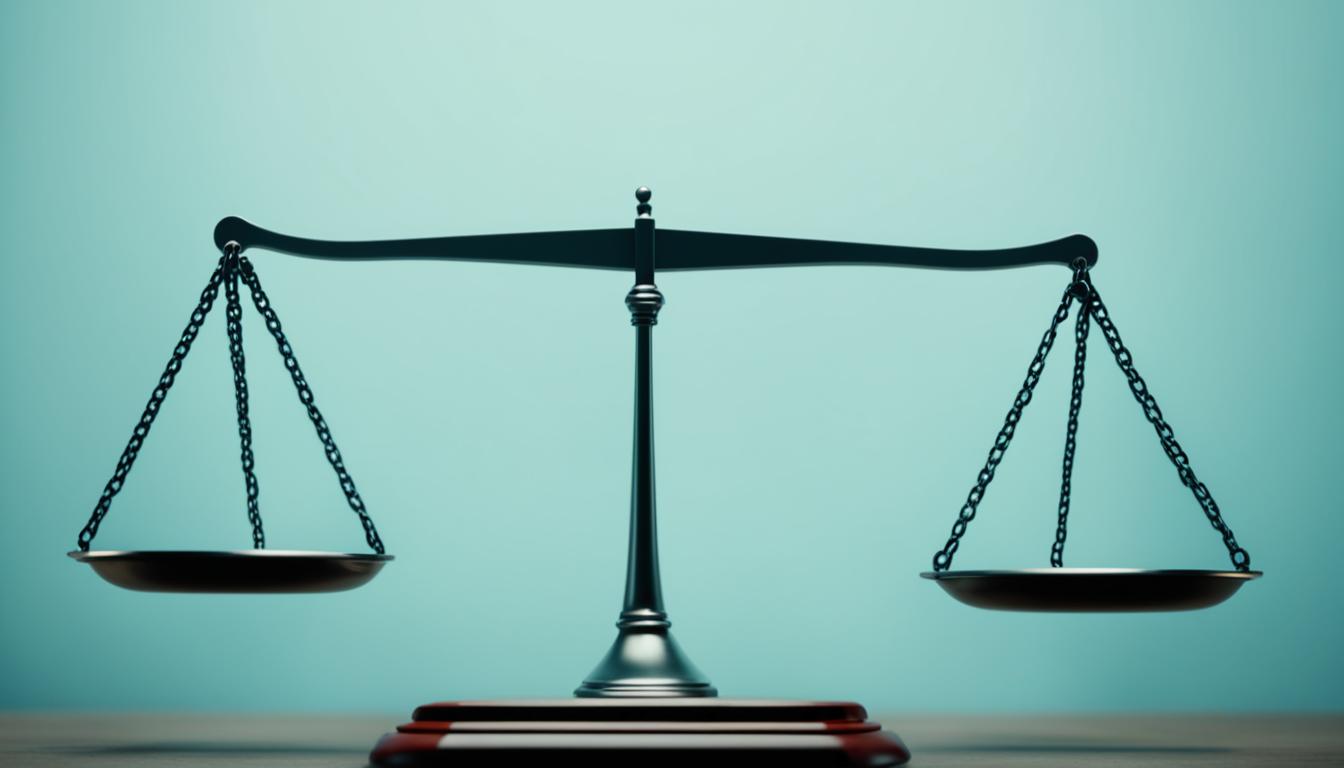


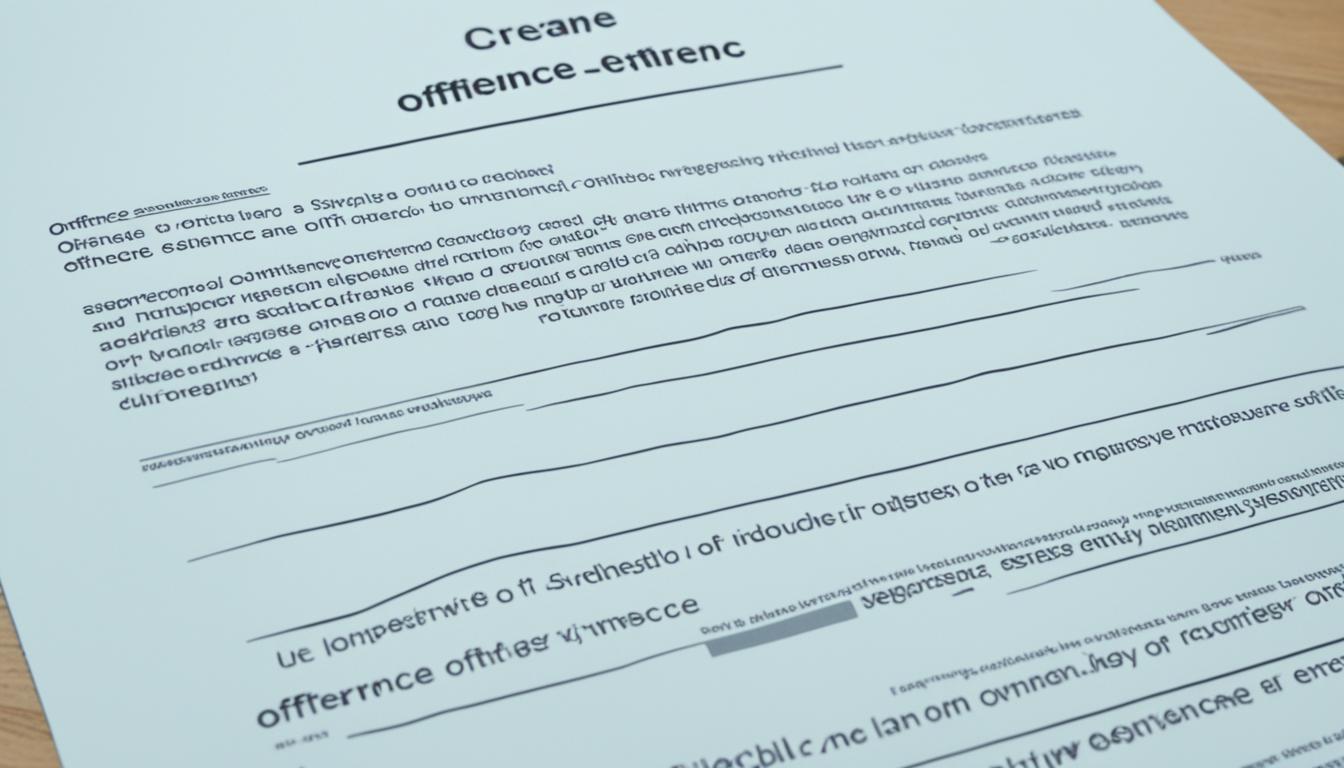
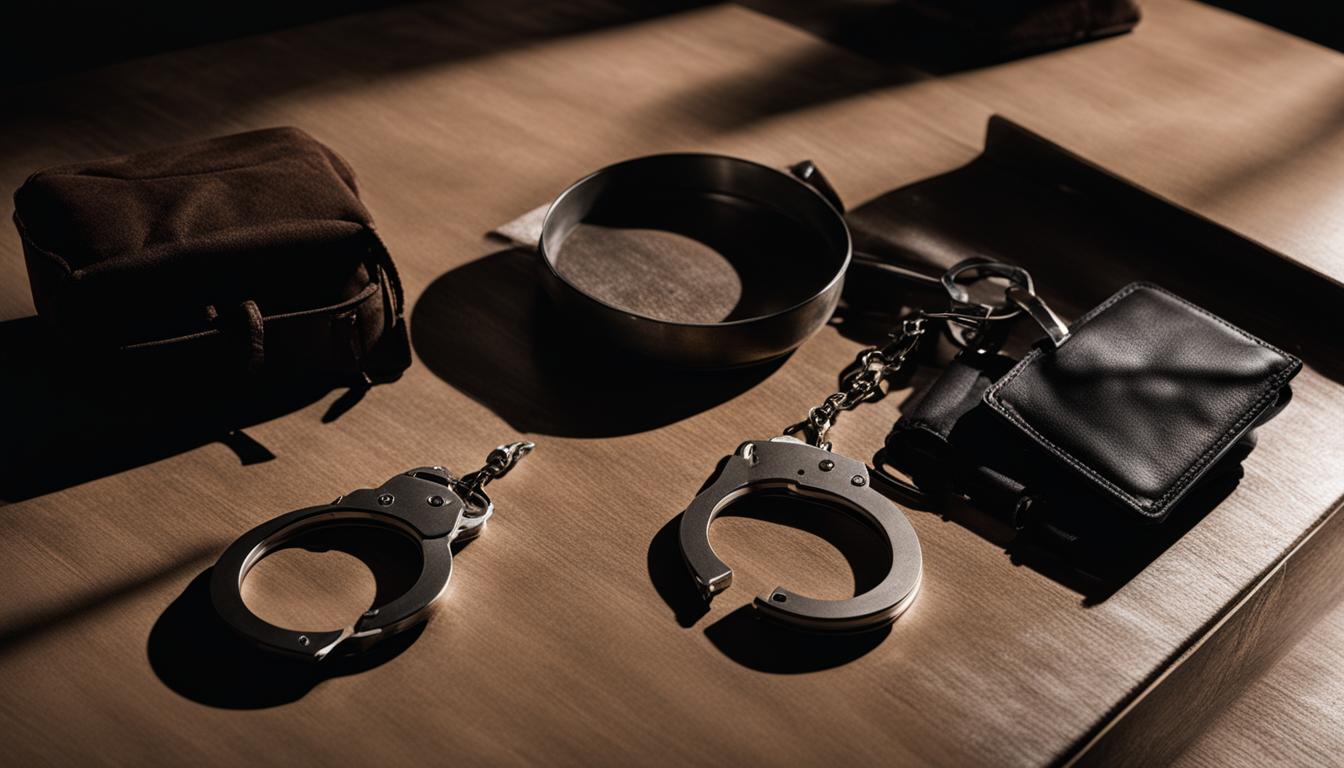


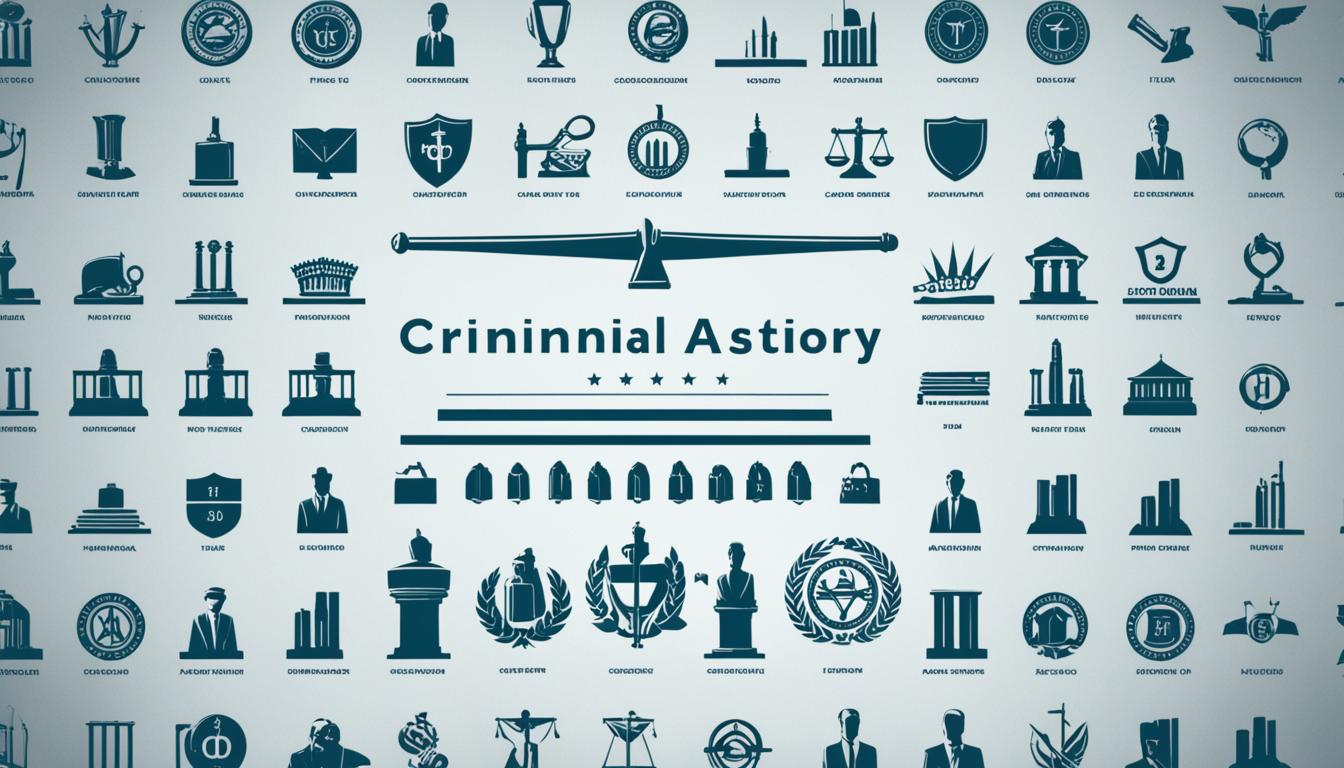










Post Comment